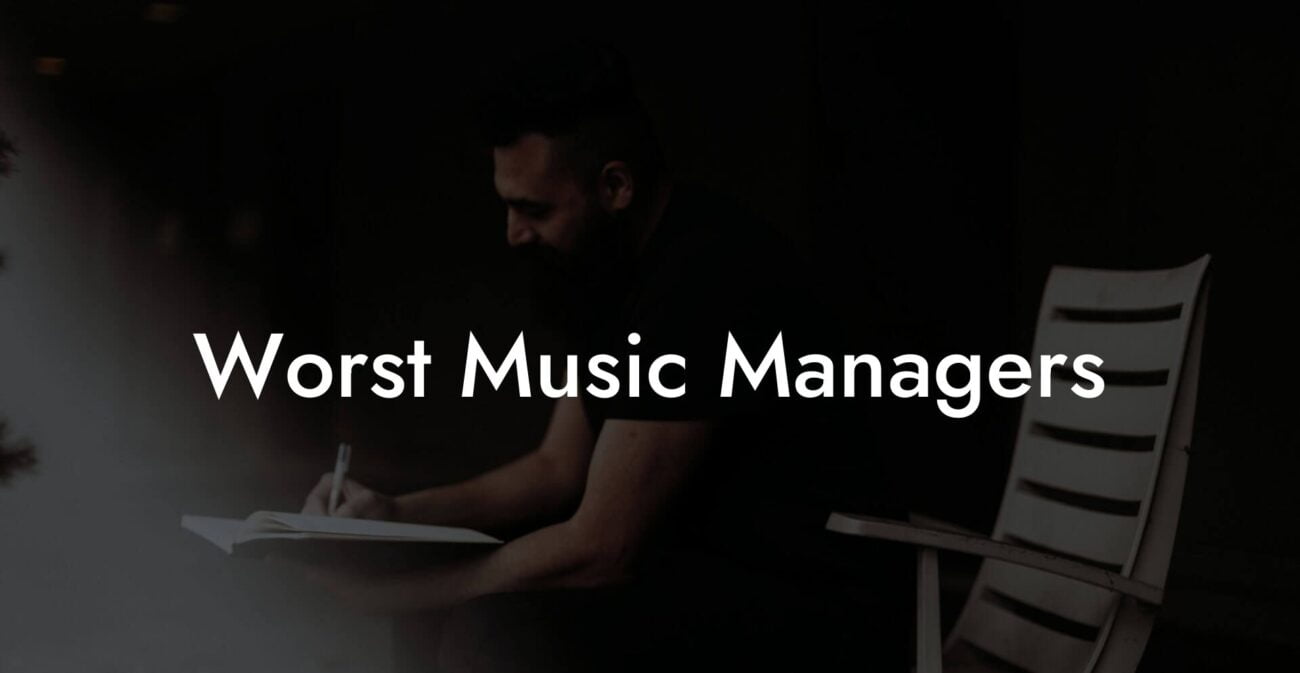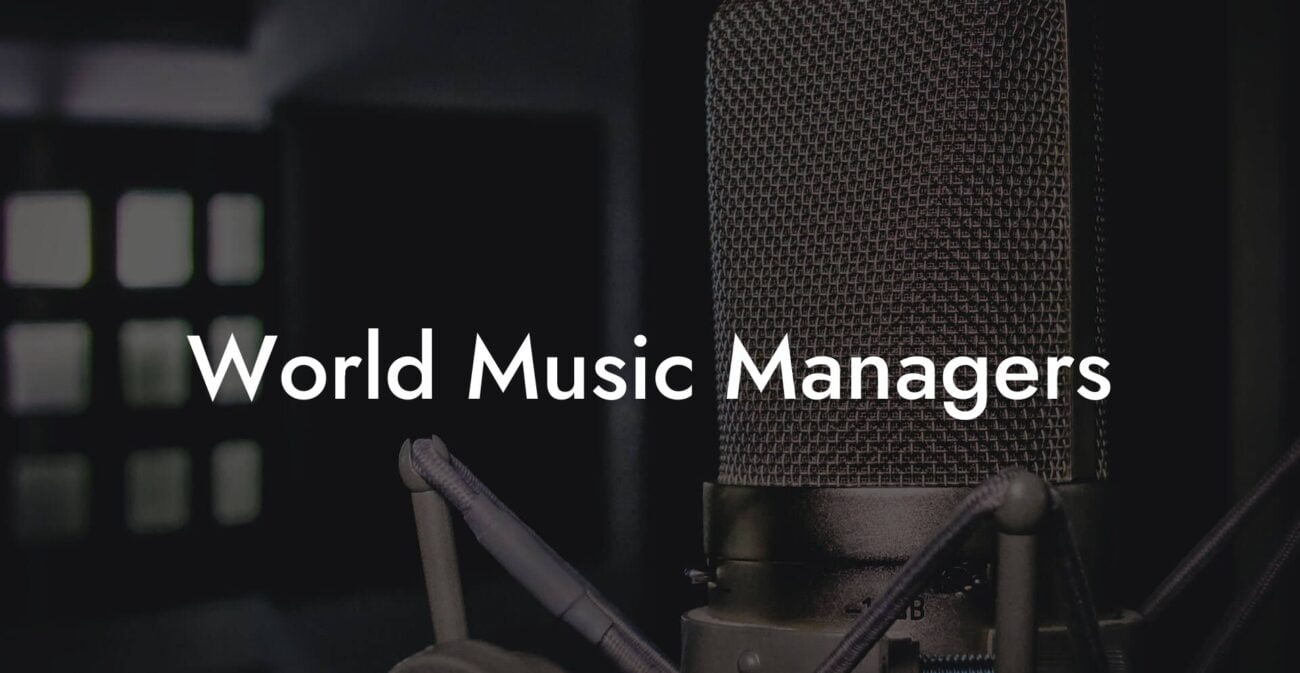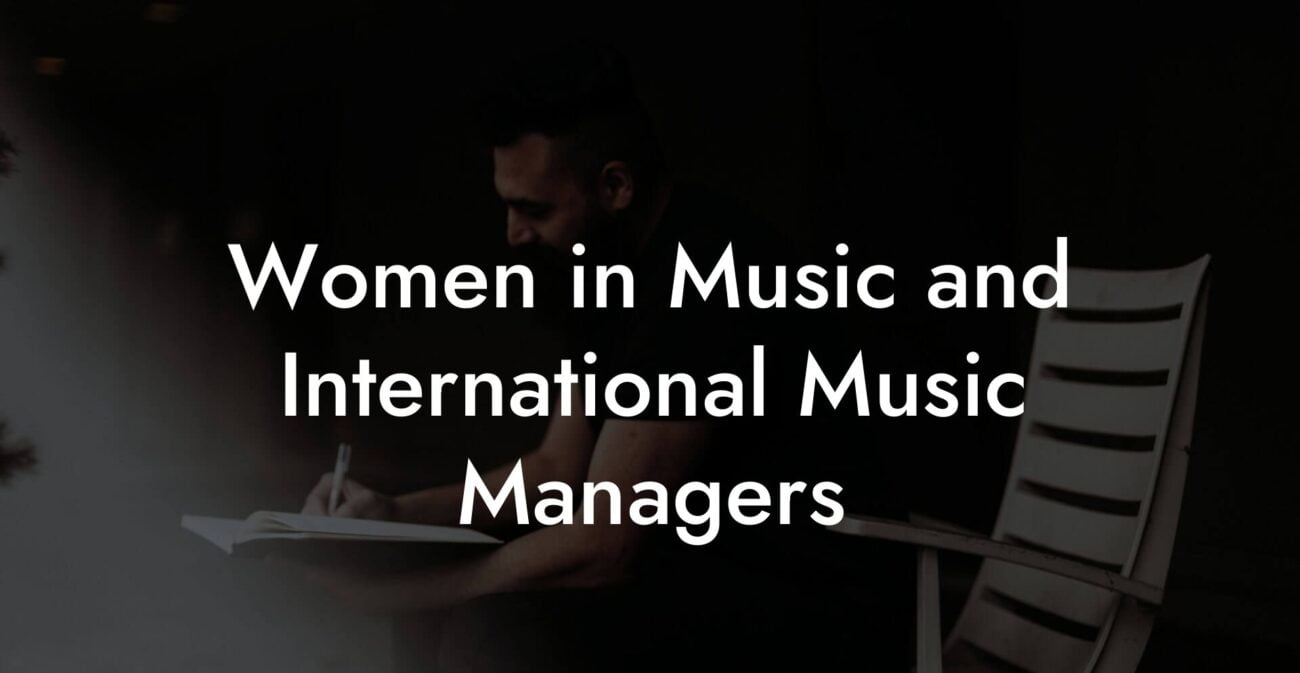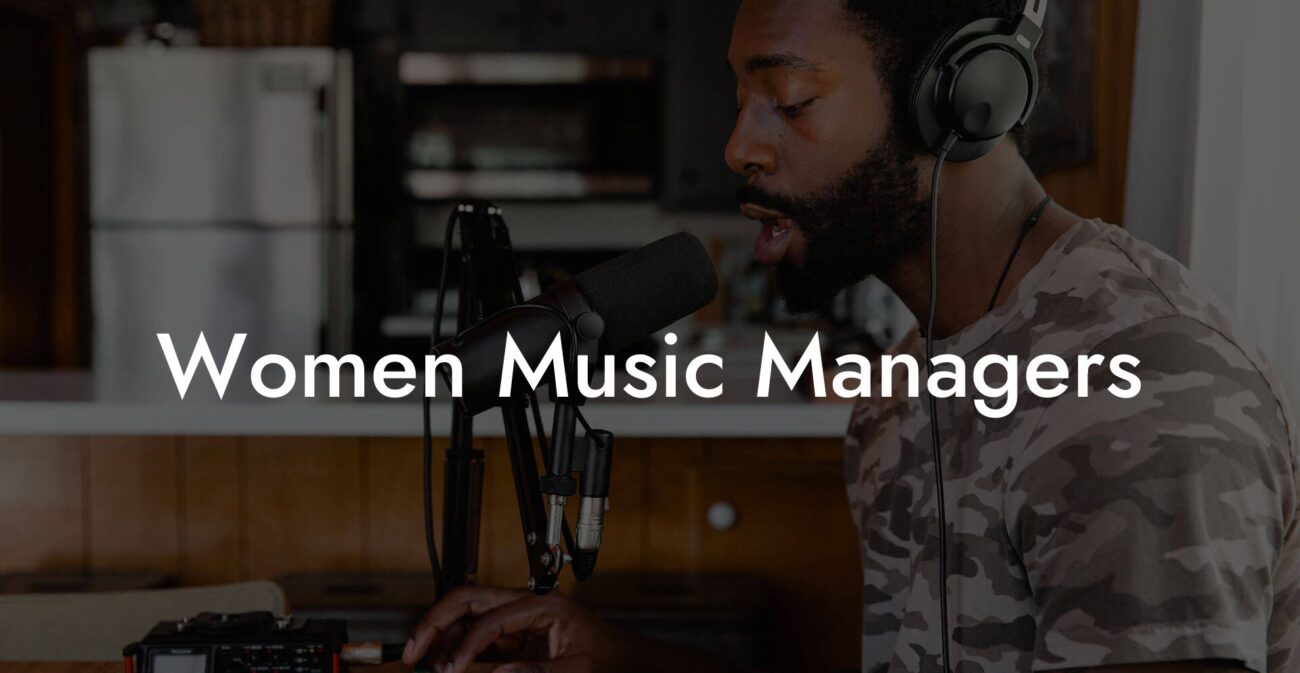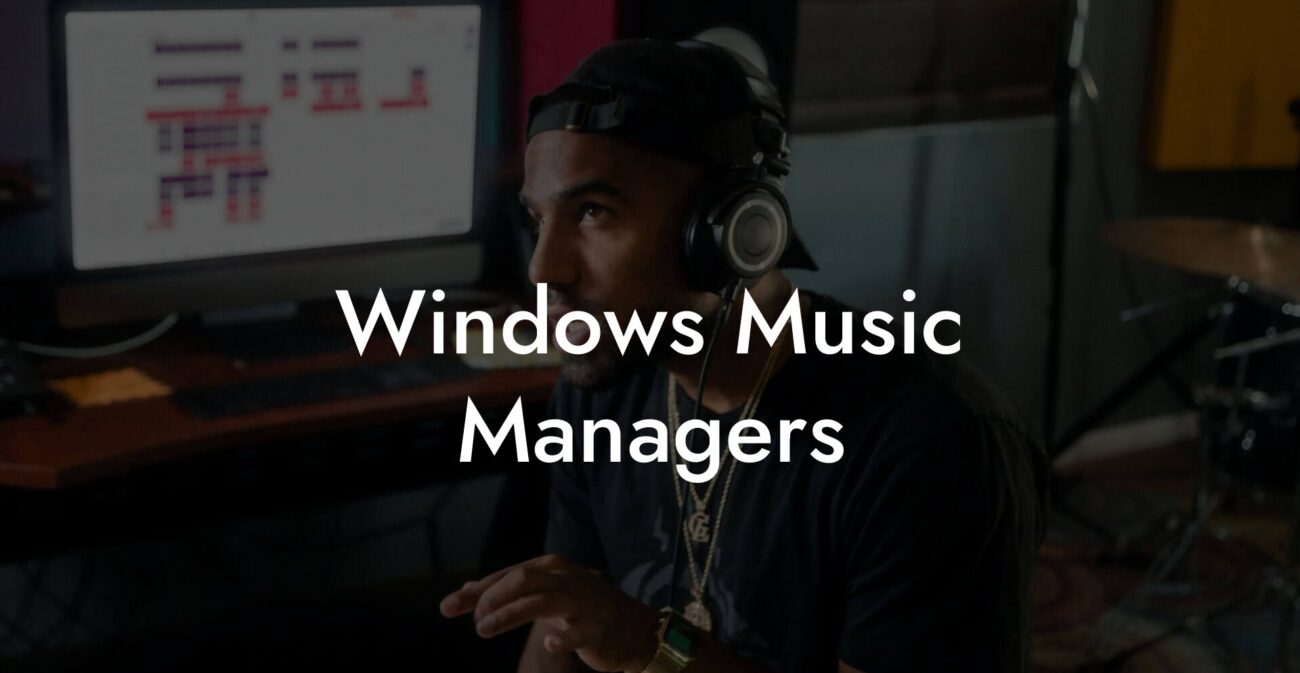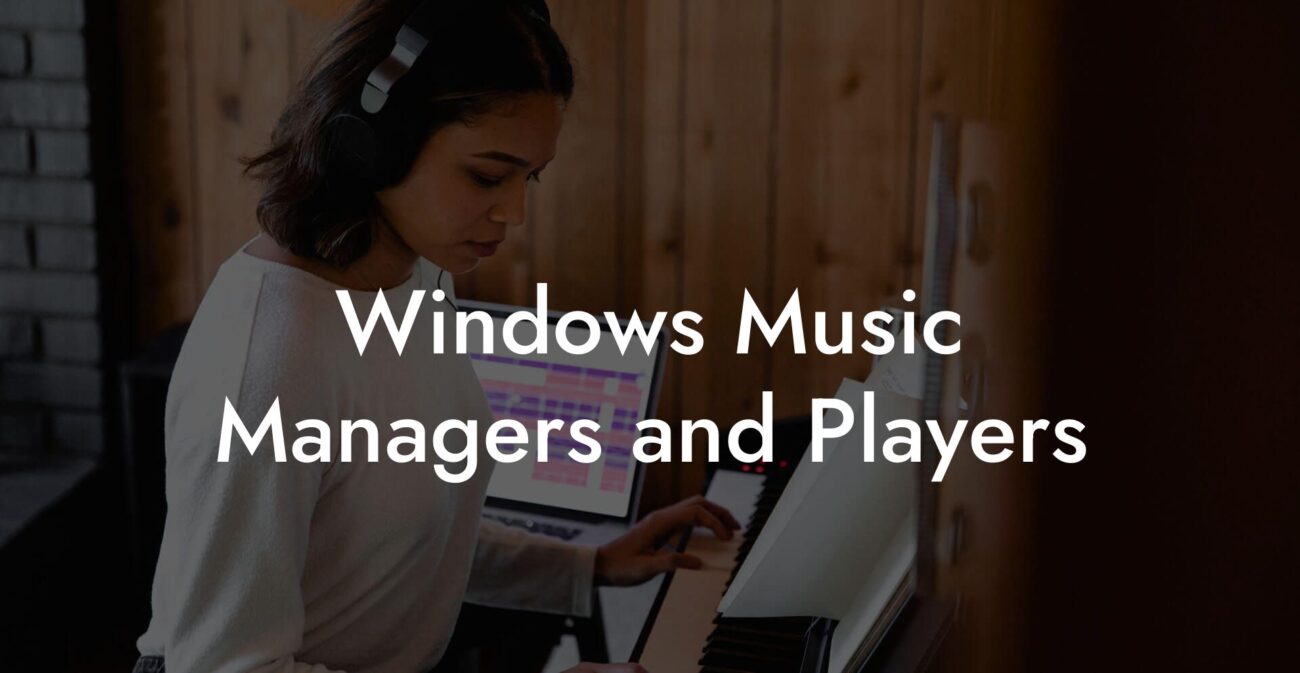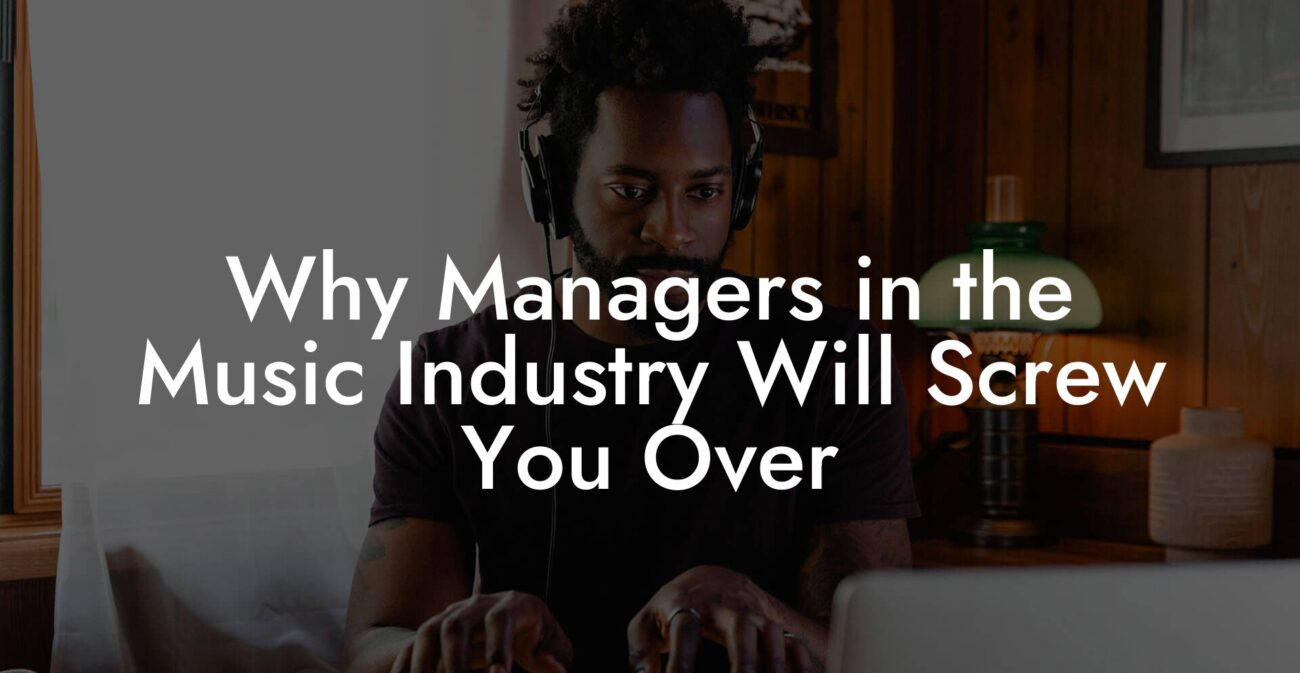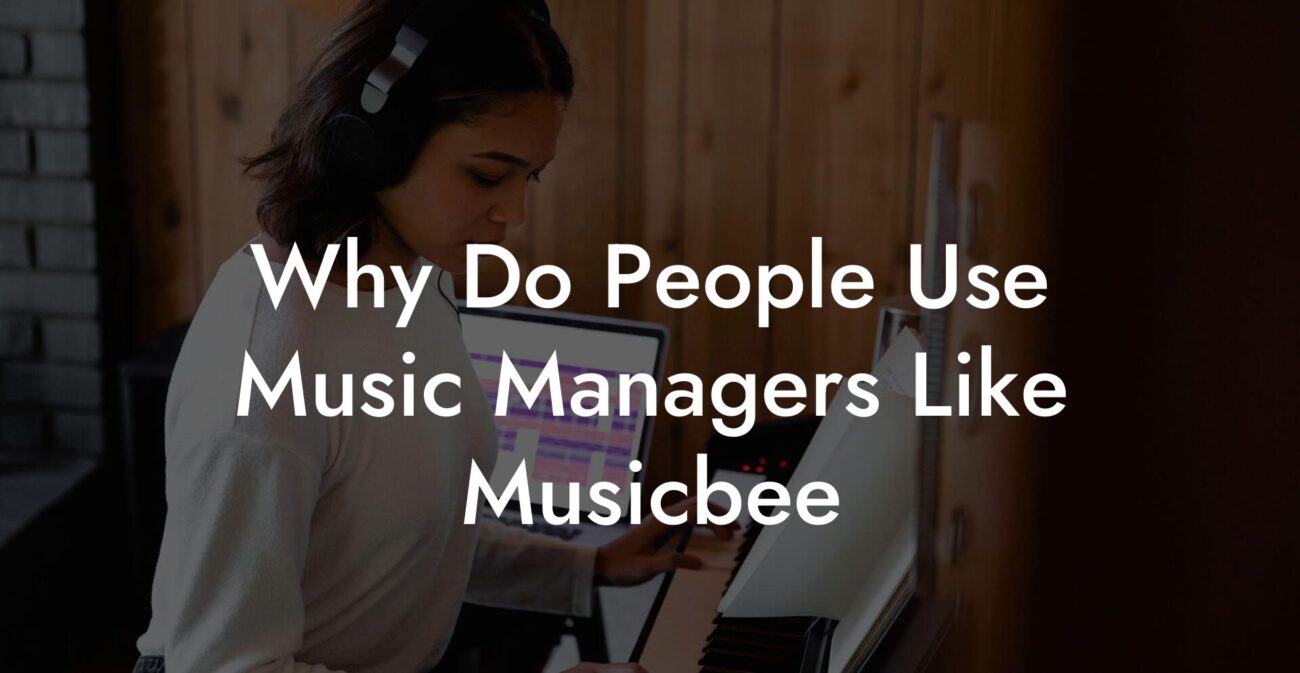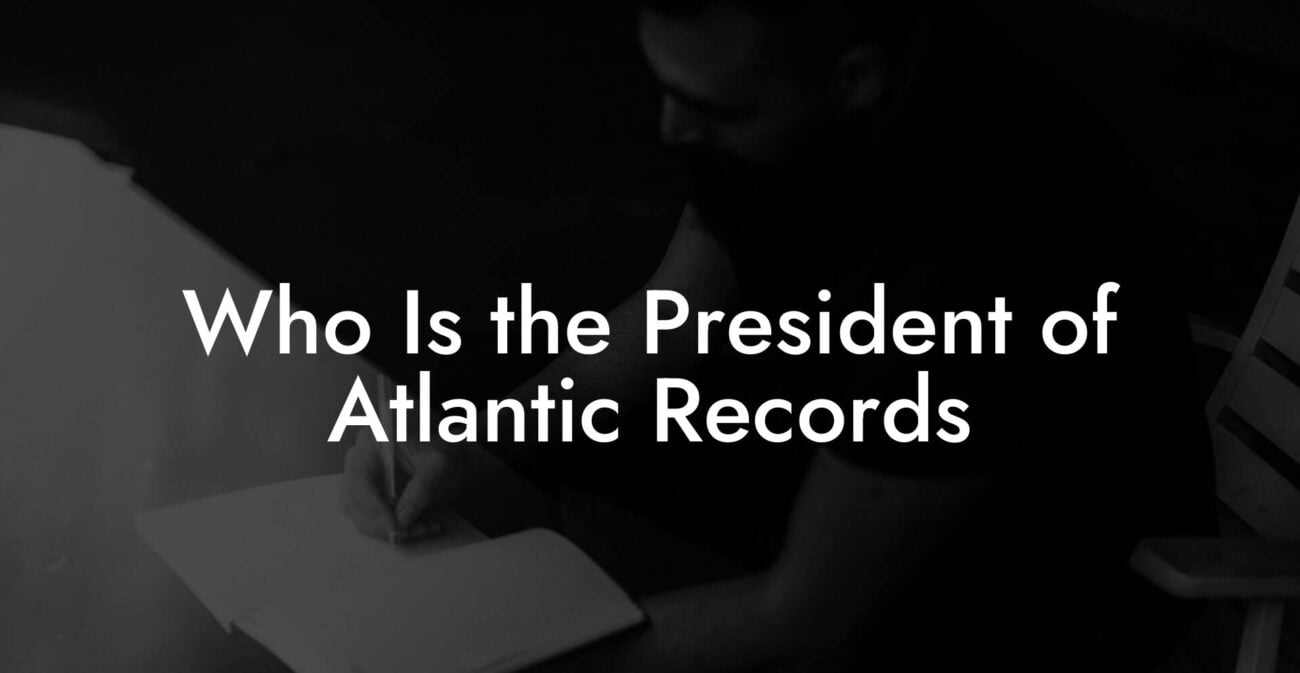Songwriting Advice
Who Are the Top Managers in the Music Industry

So, you’re ready to discover the unsung heroes behind the scenes who steer the careers of your favorite artists and shape the future of the music industry? Welcome to an in-depth dive into the world of top music managers, those creative, strategic, and sometimes downright bold individuals who transform raw talent into chart-topping success. Whether you’re a budding songwriter searching for inspiration, an aspiring musician looking to break into the industry, or just someone who marvels at the brilliance behind the scenes, this guide is crafted just for you.
Quick Interruption: Ever wondered how huge artists end up fighting for their own songs? The answer is in the fine print. Learn the lines that protect you. Own your masters. Keep royalties. Keep playing shows without moving back in with Mom. Find out more →
Quick Interruption: Ever wondered how huge artists end up fighting for their own songs? The answer is in the fine print. Learn the lines that protect you. Own your masters. Keep royalties. Keep playing shows without moving back in with Mom. Find out more →
Quick Links to Useful Sections
- Understanding the Role of Music Managers: The Ultimate Game Changers
- The Evolution of Music Management in the Digital Era
- Profiles of Top Music Managers: The Movers and Shakers
- Scooter Braun: The Digital Disruptor
- Irving Azoff: The Veteran Visionary
- Troy Carter: The Connector and Creator
- Other Influential Figures in Music Management
- What Makes a Music Manager Top in the Industry?
- The Impact of Top Managers on Music Careers and the Songwriting Scene
- How Aspiring Musicians and Songwriters Can Benefit from Top Music Managers
- Digital Tools and Resources: Empowering Creativity in the Modern Age
- Resources and Community Support: Your Next Steps
- Charting Your Own Course: Building a Relationship with a Top Music Manager
- Learning from the Masters: Case Studies in Music Management Success
- Case Study 1: From Bedroom Beats to Billboard Hits
- Case Study 2: Reinventing an Iconic Career
- The Road Ahead: Your Future in Music and Management
- Music Management and Songwriting: A Dynamic Duo for Success
- Frequently Asked Questions About Top Music Managers
- Embrace Your Musical Journey with Confidence and Creativity
Understanding the Role of Music Managers: The Ultimate Game Changers
Music managers are like the master conductors of an orchestra, they coordinate, strategize, and ensure that every note in an artist's career plays out perfectly. They are the first line of defense and the secret weapon for managing everything from contract negotiations to marketing strategies, touring, and even image management.
But what exactly does a top-notch music manager do? At the core, they are responsible for building and maintaining relationships with record labels, booking agents, publicists, and marketing teams. They serve as a bridge between the artist and the vast network that forms the music industry, ensuring that every opportunity is seized to propel an artist's career forward.
In today’s hyper-connected world where trends change with the speed of a viral tweet, a seasoned manager has to double as a strategist, a diplomat, and at times, a mentor. Their job isn’t just about getting a record deal, it’s about nurturing an artist’s vision and guiding them through every twist and turn of a rapidly evolving industry.
For those of us who geek out over songwriting and the creative process, it’s fascinating to see how managers not only manage logistics but also inspire creativity, helping artists overcome blockages and keep their creative juices flowing. And here’s a fun fact: many top managers were once musicians themselves, carrying a deep understanding of the artistry they represent.
The Evolution of Music Management in the Digital Era
Let’s be real, the music industry isn’t what it used to be. Gone are the days when a record store, radio, and MTV were the only gateways to success. Today, the digital revolution with streaming platforms, social media, and viral content has redefined how music is created, distributed, and consumed.
In the past, music managers focused mainly on booking gigs, negotiating contracts, and navigating the labyrinth of record labels. However, modern music management has evolved into a multifaceted role that includes a deep dive into digital marketing, social media strategies, data analytics, and brand partnerships. In a world where a single tweet can launch an album into the stratosphere or crash an entire career, the savvy manager is a digital native who knows how to use analytics and trends to their advantage.
This transformation has opened up exciting new avenues for artists, including the democratization of music production tools and online platforms that allow anyone to share their sound with a global audience. With top managers harnessing these digital tools, even independent artists have the opportunity to make waves on platforms like Spotify, YouTube, and TikTok.
The savvy manager of today is not just a traditional business operator, they’re a digital strategist and influencer who understands the intricacies of online communities, meme culture, and the power of authentic engagement. Their role is increasingly about creating a narrative that resonates with millennials and Gen Z audiences who value authenticity, creativity, and a good story as much as a catchy hook.
Profiles of Top Music Managers: The Movers and Shakers
When it comes to chart-topping hits and world tours, behind every successful artist stands a visionary manager. Let’s take a closer look at a few of these high-caliber individuals who have redefined what it means to be a top music manager in today’s industry:
Scooter Braun: The Digital Disruptor
Widely recognized for his role in launching the careers of major artists, Scooter Braun has become synonymous with innovation in music management. His approach is all about leveraging digital platforms to amplify artists’ presence online. From curating viral content strategies to negotiating groundbreaking deals, Braun embodies the new wave of music management that synergizes creativity with savvy business tactics.
Irving Azoff: The Veteran Visionary
With decades of experience under his belt, Irving Azoff is a legend in the industry. He’s managed some of the biggest names in music and is known for his uncanny ability to foresee trends before they hit the mainstream. His talent lies in understanding both the creative and business aspects of the industry, making him a trusted advisor to artists who are navigating careers that span generations.
Troy Carter: The Connector and Creator
In an era where the lines between music, technology, and entrepreneurship blur, Troy Carter stands out as a dynamic force. His work with emerging artists and tech-driven branding has helped transform the landscape of artist representation. Carter’s blend of creative vision and business acumen connects trends in the digital realm with real-world success, making him a go-to name for aspiring musicians who want to hone their craft and break out on the big stage.
Other Influential Figures in Music Management
While the spotlight often falls on a few household names, the music industry is filled with other influential managers whose work might not make headlines but is absolutely essential to the fabric of the industry. These individuals work tirelessly behind the scenes, often shaping local scenes into global phenomena. Their stories serve as an inspiration to millennials and Gen Z alike, showing that success in the music world isn’t reserved for just a select few.
The rise of these digital-savvy figures has made it clear that the role of the music manager is as diverse as the music itself, ranging from managing global superstars to supporting niche, avant-garde talent. What unites them is a relentless commitment to innovation and a deep-seated passion for music.
What Makes a Music Manager Top in the Industry?
So, what distinguishes a top-tier music manager from the rest of the crowd? It isn’t simply a matter of who has the flashiest contacts or the biggest deal. The best managers share a blend of unique attributes and skills that set them apart:
- Adaptability: The music industry is known for its rapid changes. A great manager is always on their toes, ready to pivot strategies in response to new trends or unexpected challenges.
- Innovative Thinking: Creativity isn’t just for artists. Top managers are adept at brainstorming unique marketing angles, crafting compelling narratives, and forging influential partnerships.
- Deep Industry Connections: Success in the music world is often about who you know. The right connections open doors to exclusive opportunities, collaborations, and spotlights that can make or break an artist’s career.
- Financial Acumen: Managing money, negotiating contracts, and skillfully handling finances are critical aspects of the job. This expertise ensures that artists not only thrive creatively but also reap financial rewards for their work.
- Strategic Vision: The best managers have the foresight to plan long-term, ensuring that an artist's career remains sustainable and dynamic over the years.
- Emotional Intelligence: At the heart of every successful career lies a supportive relationship. Top managers are often as much mentors as they are business strategists, guiding artists through the highs and lows of the industry with empathy and insight.
These attributes help top managers navigate the complex web of artist development, branding, and industry politics, guaranteeing that each decision is rooted in both passion and practicality.
The Impact of Top Managers on Music Careers and the Songwriting Scene
Imagine crafting lyrics that resonate with millions, only to have your message lost in the noise of an overcrowded market. This is where a top music manager comes into play. By providing strategic direction, these industry mavens ensure that talented songwriters and creative musicians can rise above the fray to make a lasting impact.
For many artists, having a top manager is like having a personal coach who not only hones your craft but also guides you through the labyrinth of the business side of music. They help negotiate profitable contracts, secure lucrative brand partnerships, and manage the intricate details of touring and promotional events. This kind of support is invaluable, particularly for emerging songwriters whose creative genius deserves a spotlight without the distractions of mundane business tasks.
Moreover, top managers serve as gatekeepers of opportunity. Their vast networks enable them to connect artists with the right people, whether it’s a producer with a knack for spotting emerging talent or a record label on the lookout for the next big hit. Their expertise can propel an artist's career from a local phenomenon to a global sensation almost overnight.
The influence of these managers is especially critical today, when digital platforms have democratized access to music but also created fierce competition. In an environment where viral trends and fleeting fame are the norms, the strategic guidance of a seasoned manager can ensure that an artist’s career is built on a strong foundation rather than a temporary spike on social media.
Top managers understand that meaningful artistry isn’t just about the next big hit, it’s about building a legacy. They foster environments where songwriters can experiment, collaborate, and produce innovative work that challenges the status quo. The result is a richer, more diverse musical landscape that continually evolves to reflect the innovative spirit of our times.
How Aspiring Musicians and Songwriters Can Benefit from Top Music Managers
Are you dreaming of having your lyrics echo through the hearts of millions or taking the stage at a sold-out arena? Here’s some good news: you don’t have to tackle the music industry’s labyrinth solo. Learning from and, if possible, partnering with a top music manager can be a game-changer for your artistic journey.
One of the biggest hurdles for emerging artists is navigating the business side of music. A renowned manager can help you hone your brand, refine your sound, and strategically plan the next steps in your career. They’re the friends who know the difference between a one-hit wonder and a sustainable legacy. With their expertise, you can focus on what truly matters, crafting remarkable lyrics and composing mesmerizing melodies.
Moreover, top managers are invaluable when it comes to securing the opportunities and resources necessary for artistic growth. From arranging studio time with top-notch producers to negotiating fair contracts that truly reflect your talents, they ensure that your creative energy gets the recognition and reward it deserves.
For many songwriters, the journey to musical success involves a blend of vulnerability and resilience. Top managers provide not only professional guidance but also emotional support, helping you weather the inevitable highs and lows of the industry. Their mentorship can transform your artistic passion into a thriving career that evolves with the dynamic trends of today’s music scene.
And if you’ve ever felt overwhelmed by the sheer volume of available digital tools and social media strategies, know that a good manager can help you sift through the noise. They’ll teach you how to leverage platforms like Instagram, TikTok, and YouTube to amplify your message, ensuring your voice is heard by audiences who are ready for your next masterpiece.
Digital Tools and Resources: Empowering Creativity in the Modern Age
In tandem with expert guidance, today’s artists have a vast array of digital tools at their disposal. The landscape is teeming with innovative solutions designed to simplify the creative process, streamline management tasks, and foster community among musicians. One such essential resource is Lyric Assistant, an intuitive platform that helps musicians effortlessly craft lyrics for their next hit.
Digital tools like Lyric Assistant allow you to tap into a wellspring of creativity without getting bogged down by writer’s block. These platforms offer suggestions, inspiration, and customizable templates that can transform a blank page into a lyrical masterpiece in minutes. When combined with the strategic vision of a top music manager, such tools become a powerful part of your artistic arsenal.
But it’s not just about creating content, the digital world also provides vast opportunities for promotion and collaboration. Social media management tools, analytics platforms, and online marketplaces for beats and instrumentals enable you to share your work globally. These resources demystify the process of music distribution for independent artists and allow you to forge connections with other creatives, much like-minded individuals who are driven by passion and innovation.
The remarkable interplay between technology and top-tier management is paving the way for an era where the next big hit could emerge from a YouTube video recorded in a bedroom studio. Embracing these digital innovations ensures that your creative energy is never limited by logistical constraints, and it positions you at the forefront of a music revolution that values both art and strategy.
Resources and Community Support: Your Next Steps
Connecting with a broader community is a game-changing part of the journey, whether you’re an aspiring songwriter, a musician, or an innovator aiming to join the ranks of the top music industry managers. Communities, both online and offline, foster connections that can lead to collaborations, mentorship opportunities, and invaluable insights into the ever-changing music scene.
Start by exploring platforms like social media forums, industry-specific networking sites, and local music meetups. These communities should serve as safe spaces where ideas are shared, creative challenges are overcome, and new trends are discussed. For instance, online boards dedicated to songwriting, music production, and managerial strategies can offer real-world advice that complements the guidance from established industry gatekeepers.
Additionally, many online platforms boast dedicated sections for resources, from free webinars and masterclasses led by top managers to comprehensive guides on digital marketing in the music industry. These tools can help bridge the gap between raw talent and the polished professionalism expected in today’s competitive market.
And while mentorship is invaluable, don’t forget the power of digital assistants like Lyric Assistant, which simplifies the creative process by offering smart, on-the-go lyric help. Such tools not only enhance your songwriting process but also serve as a digital companion in your journey to musical mastery.
Remember, every legendary artist has a unique story of struggle, perseverance, and breakthrough moments, often catalyzed by these industry networks. The passion, camaraderie, and mutual support found within these communities are as essential to your musical trajectory as talent and hard work.
Whether you’re formulating your first set of lyrics or gearing up for a major breakthrough, tapping into the collective wisdom of industry professionals and creative peers could be the key to unlocking opportunities that you never thought possible.
Charting Your Own Course: Building a Relationship with a Top Music Manager
If you’re reading this, you already know that success in the music industry isn’t just about having the best beats or the most catchy chorus. It’s also about building relationships, with your fans, your collaborators, and yes, even with the powerhouse managers who have a knack for spotting talent a mile away.
Building a fruitful relationship with a top music manager starts with knowing your worth and having a clear vision for your career. Whether you’re just starting out or looking to take your artistry to the next level, here are some key strategies to keep in mind:
- Hone Your Craft: Focus relentlessly on perfecting your songwriting and musical skills. The more polished your art is, the easier it becomes to attract the attention of influential managers.
- Develop Your Brand: In a saturated market, having a distinctive artist identity is crucial. Work on creating a brand that not only reflects your musical style but also resonates with your audience.
- Leverage Digital Platforms: Post your music on streaming services, share behind-the-scenes glimpses on social media, and use digital tools like Lyric Assistant to enhance your creative process. A strong online presence acts as a digital portfolio that top managers can’t ignore.
- Network Authentically: Whether online or in-person, remember that genuine connections are formed on shared interests and mutual respect. Attend industry events, join relevant forums, and engage in collaborative projects that expand your reach.
- Stay Nimble: The music industry is constantly evolving. Embrace change, stay updated on the latest trends, and be open to redefining your strategies as needed.
When you combine an authentic creative voice with these strategic efforts, you create an irresistible magnet for top music managers. They’re always on the lookout for artists who embody passion, resilience, and a forward-thinking approach to music.
Remember, your music is your brand, and with the right manager by your side, you can transform that brand into a lasting legacy. The industry is rich with stories of unexpected breakthroughs, where perseverance, creativity, and that one game-changing partnership propelled artists from the background to the big stage.
Don’t be discouraged by the complexities of the music world, the blend of passion and perseverance can set you apart. Embrace the journey, learn from those who have blazed the trail, and be ready to seize your moment when opportunity knocks.
Learning from the Masters: Case Studies in Music Management Success
There’s nothing quite as inspiring as real-life stories that illustrate how the perfect synergy between an artist and a top-tier manager can lead to meteoric success. Let’s delve into a couple of case studies that reveal the transformative power of exceptional music management.
Case Study 1: From Bedroom Beats to Billboard Hits
Picture this: a young, talented songwriter starts creating tracks in a modest home studio, capturing hearts with raw, emotionally charged lyrics. Despite the talent, breaking into the competitive industry seemed nearly impossible. Enter a seasoned music manager with a vision. By leveraging digital marketing, social media strategies, and innovative music production tools like Lyric Assistant, the manager helped transform those humble beginnings into viral sensations. Over time, the artist’s social channels flourished, streams multiplied exponentially, and a once-hidden talent burst into the limelight. Today, this artist not only graces the billboards but also pioneers a unique sound that resonates with fans worldwide.
Case Study 2: Reinventing an Iconic Career
Consider an established artist facing the daunting challenge of evolving with changing musical trends. The artist’s initial success was undeniable, yet stagnation loomed as the industry shifted toward newer sounds and digital innovation. A dynamic music manager stepped in, rebranding the artist with a fresh narrative and sound that merged traditional authenticity with modern flair. By retooling promotional strategies, tapping into emerging digital platforms, and revamping live show experiences, the manager not only rejuvenated the artist’s career but also introduced them to a younger, more diverse audience. This reinvention not only revived old glory but also redefined what it meant to be a timeless artist in a modern music world.
These case studies underscore that whether you’re an emerging artist or a seasoned veteran, the right guidance can transform obstacles into opportunities, making every creative struggle a stepping stone to success.
The Road Ahead: Your Future in Music and Management
As we stand on the brink of a new era in the music industry, it’s clear that the roles of artists and managers are more interconnected than ever. The journey to becoming a celebrated musician or an influential music manager is filled with challenges, but the rewards are incomparable. Embrace the fact that the music industry is an evolving landscape where talent, innovation, and adaptability create infinite possibilities.
The new generation of musicians is empowered by digital tools, creative platforms, and a supportive community that continuously strives to break the mold. Whether you're in a bedroom studio honing your songwriting skills or stepping into the boardroom negotiating your first big record deal, your journey is unique, and with the right manager by your side, the future looks incredibly bright.
It’s time to harness your inner creativity, network with like-minded individuals, and learn from the best. The top managers in the music industry aren’t just gatekeepers, they’re mentors, strategists, and the ambassadors of innovation who inspire countless others to dream big. Let their stories fuel your ambition and remind you that behind every chart-topping hit, there’s a visionary who knew exactly how to elevate talent.
So, whether you’re crafting a verse, refining your sound, or setting your sights on a breakthrough opportunity, remember that the interplay of creativity and strategic management is the secret sauce behind enduring success in music. Now is the time to take that leap, embrace your potential, and step into a world where the only limits are the ones you impose on your imagination.
Music Management and Songwriting: A Dynamic Duo for Success
There’s an undeniable symbiosis between music management and songwriting. As you pour your heart out in lyrics and melodies, a top manager ensures that your art finds its way to the right audiences. They take your raw creative energy and mold it into a product that’s marketable yet authentic. This duality is particularly crucial for millennials and Gen Z, who value transparency and originality while still being attuned to high production quality and strategic branding.
The influence of a skilled manager on an artist’s songwriting journey cannot be overstated. Not only do they provide the practical tools for promotion and career management, but they also serve as a sounding board for new ideas, helping to shape lyrics that tell a compelling story. With the right manager, your journey as a songwriter transforms from a solitary creative pursuit into a collaborative, dynamic process where every line you write resonates with purpose.
Moreover, as you navigate the intricacies of music production and distribution, having access to advanced digital tools like Lyric Assistant can supercharge your creative process. When combined with the strategic insights of a top manager, these tools enable you to overcome creative blocks and achieve a seamless flow from inspiration to finished track.
Frequently Asked Questions About Top Music Managers
Dive into some of the most common questions about music managers, the digital evolution in music management, and how this knowledge can empower your journey as a musician or songwriter.
1. Who exactly are music managers and what do they do?
Music managers are professionals who guide and oversee the business, promotional, and career development aspects of an artist’s journey. They connect artists with record labels, organize tours, negotiate contracts, and strategize on brand development, ensuring that creative potential is fully realized.
2. How do top music managers differ from traditional managers?
Top music managers blend creative mentorship with digital strategy. Unlike traditional managers who might focus solely on booking gigs and negotiating deals, today’s leaders integrate social media, analytics, and innovative marketing campaigns to create a holistic approach to career growth.
3. What qualities make a music manager stand out?
Adaptability, a deep network of industry contacts, innovative thinking, strong financial acumen, and emotional intelligence are just a few of the traits that distinguish top managers from the rest.
4. Can a great manager influence my songwriting and creative output?
Absolutely. A great music manager not only sets up the business side of your career but also acts as a mentor and creative collaborator, helping you refine your lyrical content and artistic vision.
5. How important is digital expertise in modern music management?
Digital expertise is crucial. In today’s fast-paced music environment, managers need to have a firm grasp of social media, streaming analytics, and digital marketing strategies to ensure an artist’s success.
6. How can I attract a top music manager to support my career?
Focus on honing your craft, developing a unique brand identity, establishing a strong online presence, and networking authentically within the industry. These steps make you an attractive prospect for top-tier managers.
7. What role does digital technology, like Lyric Assistant, play in today’s music industry?
Digital tools streamline the creative process, offering inspiration and practical support for lyric writing, content creation, and overall project management. They empower you to focus on your artistry while ensuring your work reaches the right audience.
8. Is it possible to balance creativity and commercial appeal in my music?
Yes, and this has become a hallmark of the most successful artists. Top managers work closely with artists to maintain creative integrity while implementing effective commercial strategies.
9. Where can I learn more about the insights and tactics used by top music managers?
Follow industry blogs, attend webinars, and participate in music community forums to stay updated on the latest trends and strategies in music management.
10. What’s the first step to kick starting my career with the right management support?
Begin by focusing on your artistry and building a solid online presence. As your work starts to gain traction, consider reaching out to established managers who align with your creative vision.
Embrace Your Musical Journey with Confidence and Creativity
The music industry is a vibrant, ever-evolving tapestry of sound, creativity, and collaboration. Top music managers are the guiding forces behind many of the hits you love, from nurturing emerging songwriters to revitalizing established careers with fresh, innovative strategies. Their impact extends well beyond scheduling gigs and closing deals; they are the visionary partners who help every artist realize their full potential.
The journey to musical greatness is rarely straightforward. It involves a delicate balance of artistic daring and strategic acumen, perseverance in the face of obstacles, and the willingness to embrace change. The insights shared by industry giants like Scooter Braun, Irving Azoff, and Troy Carter provide us with the blueprint for success in an age where digital innovation meets timeless creativity.
So, whether you’re in the midst of crafting your next chart-clearing song or just exploring what it means to live and breathe music, remember this: the right manager can transform your raw talent into a legacy that echoes through the annals of music history. Equip yourself with the creative tools, digital platforms, and the essential strategies detailed in this guide, and never lose sight of your unique voice.
Your journey in the world of music is about more than just making a song; it’s about forging connections, telling authentic stories, and connecting deeply with your audience. Embrace the challenges, celebrate your successes, and remember that behind every iconic melody and unforgettable lyric, there is a resilient spirit driven by passion and bolstered by the support of visionary managers.
The stage is set, the spotlight is on, and your future in music awaits. Dive into your creative pursuits with confidence, explore the possibilities offered by innovative digital tools like Lyric Assistant, and let your unique sound reverberate across the globe. It’s time to write your own story, one lyric at a time.


